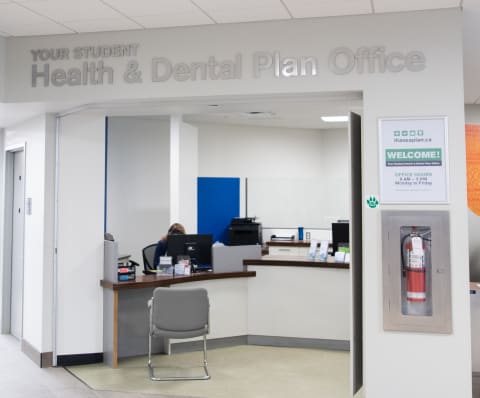
Students starting classes on campus are enrolled in the Studentcare Health and Dental Plan by default, but a gap in policy is leaving some students without health and dental insurance.
After returning from an exchange during the fall term, second-year law student Mackenzie Stewart went to the campus pharmacy as usual to refill her prescription and found out she was not covered by the Health and Dental Plan and had not been for almost five months.
“It kind of seems like a strange policy to have in place, to know you have students returning and to not have them have coverage,” Stewart said.
Sun Life health and dental coverage is offered through the University of Saskatchewan Students’ Union. The system is set up in a way that students who are classified as “off-campus” during term one are opted out of the Health and Dental Plan by default and are reportedly not made aware of the change in coverage.
However, students who start classes in term one are automatically enrolled in the plan and must make Studentcare aware if they are covered by an external health insurance provider. The changein-coverage period was from Sept. 4 to 28, 2018.
The USSU executives act in the capacity of liaison to help students navigate the university system. The Health and Dental Plan is under the portfolio of Rose Wu, vicepresident student affairs, and while the Health and Dental Plan Office follows a specific set of protocols, she can help students with any exceptional circumstances.
Although Stewart paid “outbound exchange” tuition to the U of S while she studied at the University of Ottawa, she was classified as an off-campus student. For students away during term one, they have a period of two weeks to opt in to the coverage. Otherwise, they will have to wait until the fall to be covered through the USSU.
The change-in-coverage period for new students was from Jan. 3 to 16 this year. However, when Stewart went to Studentcare on Jan. 15, she was told she was not eligible for coverage.
Thinking there was nothing more that could be done, Stewart registered for insurance under her parent’s provider and did not look into the issue any further. The Health and Dental Plan is tied to tuition, meaning that students who are not paying U of S tuition are unable to access the health coverage.
While it is still unclear why Stewart was told she was ineligible, Wu says that online correspondence courses could play a factor for not triggering the student to be classified as being oncampus.
“It’s hard to generalize because [each situation] is very individualized, but it is a triggering fee with being oncampus with the nine credits,” Wu said.
A representative from the College of Law for the French common law program, Stewart’s program, was not made available for an interview.
Although the International Student and Study Abroad Centre will ask students for proof of travel insurance before a study-abroad trip, the exchange Stewart participated in was domestic and falls out of the purview of ISSAC. Stewart says that, had she known she was not eligible for coverage, she would have registered with an external insurance provider.
The university registrar is currently looking into the problem, but the issue remains inconclusive.
—
Nykole King / Editor-In-Chief
Leave a Reply